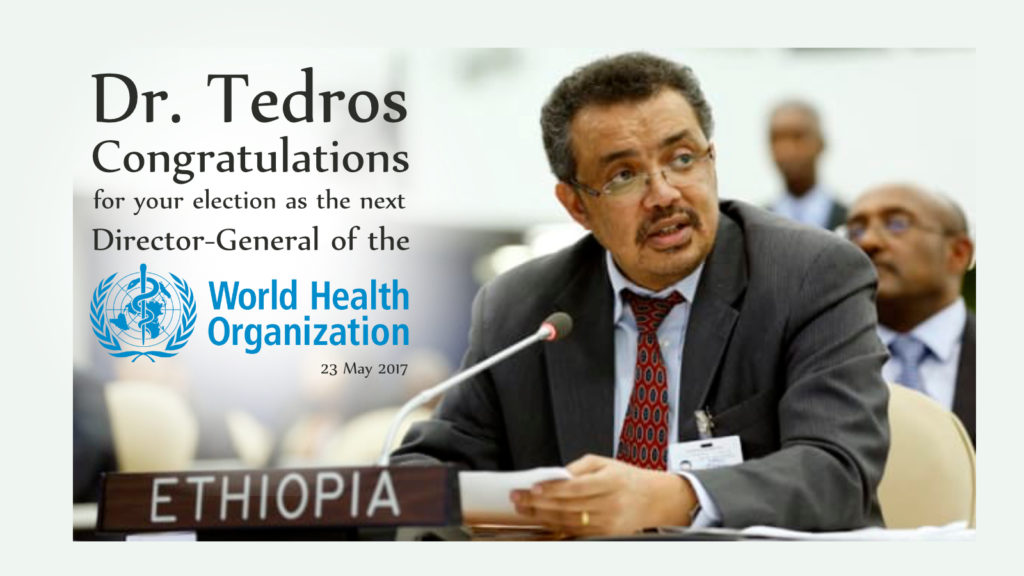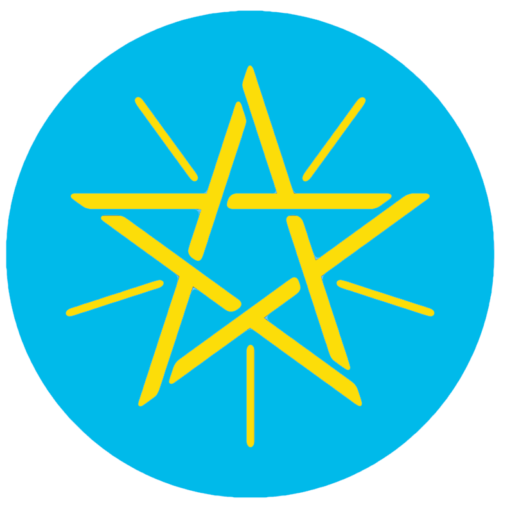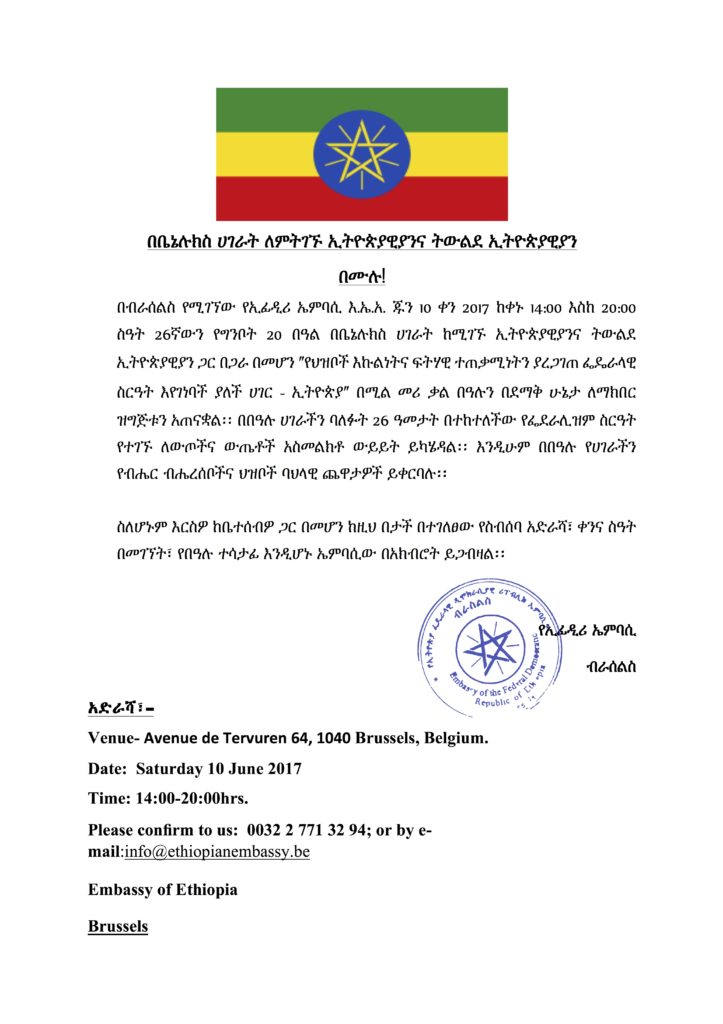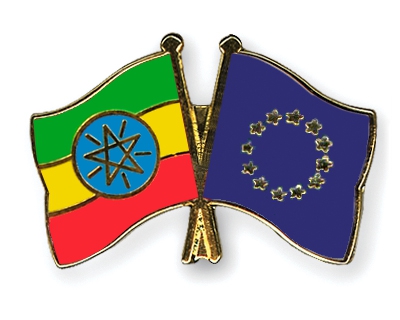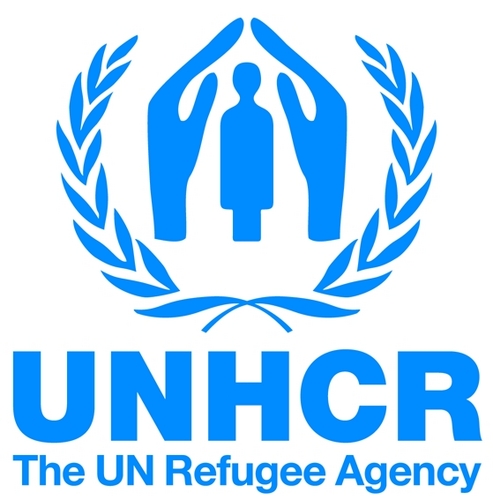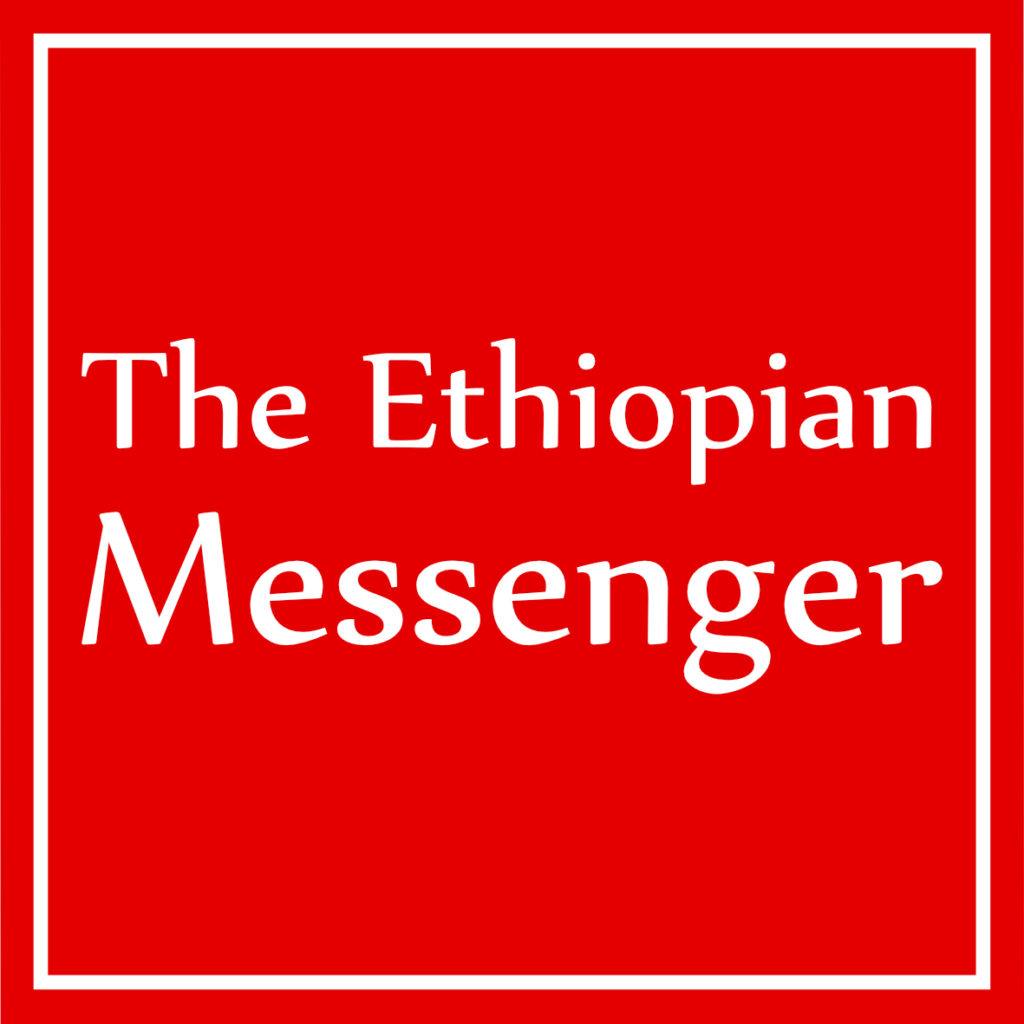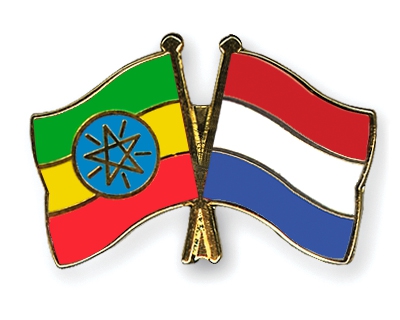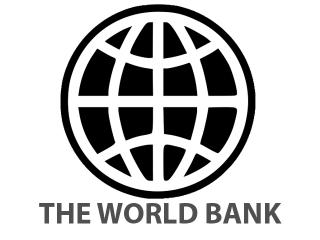This article was originally published in the 6th issue (April 2017) of The Ethiopian Messenger, the quarterly magazine of the Embassy of Ethiopia in Brussels.
Several challenges will have to be faced by the next Director-General of the World Health Organization, including new global health threats, but also to reform and give a new impetus to the organization. Dr. Tedros precisely combines the balance of technical and political competences that can help the WHO to move forward.
The next Director-General of the World Health Organization will be chosen in May 2017 following a final selection among the three remaining candidates. One European, one African, and one South Asian are competing to succeed to Dr. Margaret Chan, whose second term as WHO Director- General ends on the 30th of June 2017. Ethiopia’s nominee, Dr. Tedros Adhanom Ghebreyesus, distinguishes himself from his contenders in several respects. Leveraging from a rich professional experience, the sole African candidate of the selection holds a PhD in Community Health and benefits from a dual professional path both as health expert and seasoned diplomat. During his tenure as one of the longest serving Health ministers in Africa, he overcame some of the country’s greatest health challenges and saw dramatic gains in indicators such as child and maternal health. Now, Dr. Tedros seeks to make his efforts global by using his unique background and expertise to become the first African Director-General of the World Health Organization and contribute to its revival.
Lifelong commitment to Health
Dr. Tedros’s personal and professional paths reflect his lifelong dedication to improving healthcare. As a young man, Dr. Tedros saw the impact of disease outbreaks and poor health care first-hand, in particular the suffering and deaths caused by malaria in his community. He later unsurprisingly chose to study the effects of malaria as his PhD dissertation’s topic. In 2001, while he was the head of the Tigray Regional Health Bureau, Dr. Tedros was credited with making a 22.3 percent reduction in AIDS prevalence in the region and a 68.5 percent reduction in meningitis cases. After being appointed Minister of Health in 2005, he implemented an ambitious health reform agenda. During the 2005-2008 period alone, the Ethiopian Ministry of Health built 4,000 health centres, trained and deployed more than 30,000 health extension workers and developed a new cadre of hospital management professionals. These impressive results also helped Ethiopia to achieve almost all of the Millennium Development Goals (MDGs): maternal mortality was reduced by 71 percent, HIV mortality was reduced by 90 percent and under-five mortality decreased by two-third.

During his time as Minister of Health of Ethiopia, Tedros took part in several global health initiatives and made a profound impact in the global health architecture by leading, as a board chair, many global institutions such as UNAIDS, Partnership for Maternal, Newborn and Child Health and Roll Back Malaria. In 2009, after assuming leadership of the Global fund, a partnership organization designed to accelerate the end of AIDS, tuberculosis and malaria as epidemics, he notoriously turned the then- criticized institution into an up and running one. During his two-year term, Dr Tedros guided the Global Fund to address significant challenges and to make important decisions that have led to the development of a comprehensive reform agenda and a more efficient and effective Global Fund.
A Global Vision for challenges ahead
In previous decades, the World Health Organization has played a crucial role in achieving major milestones in combatting HIV, tuberculosis and malaria, and reducing maternal, child and infant mortality. Scientific, technological and social progress over the last century have made the lives of millions of people longer and healthier. However, the world is now facing daunting challenges and unprecedented health threats. Unhealthy lifestyles are leading to rising obesity, while globalization has made the transmission of infectious disease pathogens easier. Climate and environmental factors are likely to increase the frequency of deadly phenomena such as the 2003 heat wave that claimed the lives of 70.000 persons. Between 2030 and 2050, climate change is expected to cause approximately 250,000 additional deaths per year and the direct damage costs to health is estimated to be between two and four billion dollars a year by 2030.
The World Health Organisation, which essentially operates as an international organization, with the World Health Assembly, WHO’s supreme decision-making body, at its center, will also inevitably be affected by the rapidly evolving world architecture. Recent events such as the UK’s decision to leave the European Union and the arrival of a new administration in the United States have shaken up old alliances and generated uncertainties for the future. Therefore, WHO’s incoming Director-General will need to balance scientific priorities with the politics of members states and donors, and should not only possess experience in the health sector, but also political knowledge and diplomatic skills.
Dr. Tedros precisely possesses the balance of technical and political competence that can help the WHO to move forward. His experience at the Ministry of Health and of Ethiopia’s representation in global health initiatives afford him valuable insights that he brings to bear on challenges facing the WHO. Throughout his career, Dr. Tedros has also pursued creative new fund-raising schemes to make the institutions he led sustainable, a crucial ability since financing is often cited as one of WHO’s greatest challenges. He is already known for being a coalition builder with a collaborative, context-specific, and solutions-oriented approach to global health and international relations. As Director-General, Dr. Tedros’ vision, collaborative approach and proven effectiveness will certainly help WHO better protect the health of all people.
Africa’s Turn
For the past months, the word in international circles was that it was Africa’s turn, as an African has never led the WHO – or any important UN body for that matter. Indeed, things are looking promising for Dr. Tedros. Ethiopia’s candidate has first won the endorsement of the African Union’s Executive Council and is the only prospective candidate from the continent. Dr. Tedros was shortlisted as the front runner out of six candidates through two rounds of secret voting, collecting most votes during both rounds during the 140th meeting of the Executive board in January 2017.
A winning of the African candidate would have substantial symbolic and practical consequences. First, this would not only be an acknowledgment of Dr. Tedros’ innovative efforts, but of the current change sweeping the African continent. Overall, the continent achieved average real annual GDP growth of 5.4 percent between 2000 and 2010. African countries are at the forefront when it comes to peacekeeping and diplomatic negotiations in war-torn regions.
Moreover, Africa is the continent most afflicted by potential international public health concerns, but recent cases such the WHO’s management of the 2014 Ebola outbreak in West Africa was perceived as inept and showed the WHO’s vulnerabilities when it comes to early detection and rapid response in Africa. For its part, Dr. Tedros, as Minister of Foreign Affairs, played a pivotal leadership role in the Africa Union’s response to the Ebola epidemic by facilitating greater country ownership and urging countries to adhere to the WHO guidelines. As an experienced reformer acquainted with the intricacies of global diplomacy and coming from exemplary high-performing country, there is no doubt that Dr. Tedros will deliver in boosting the surveillance system and the communication between countries, while seeking input and consultation about how the organization can be reformed.
